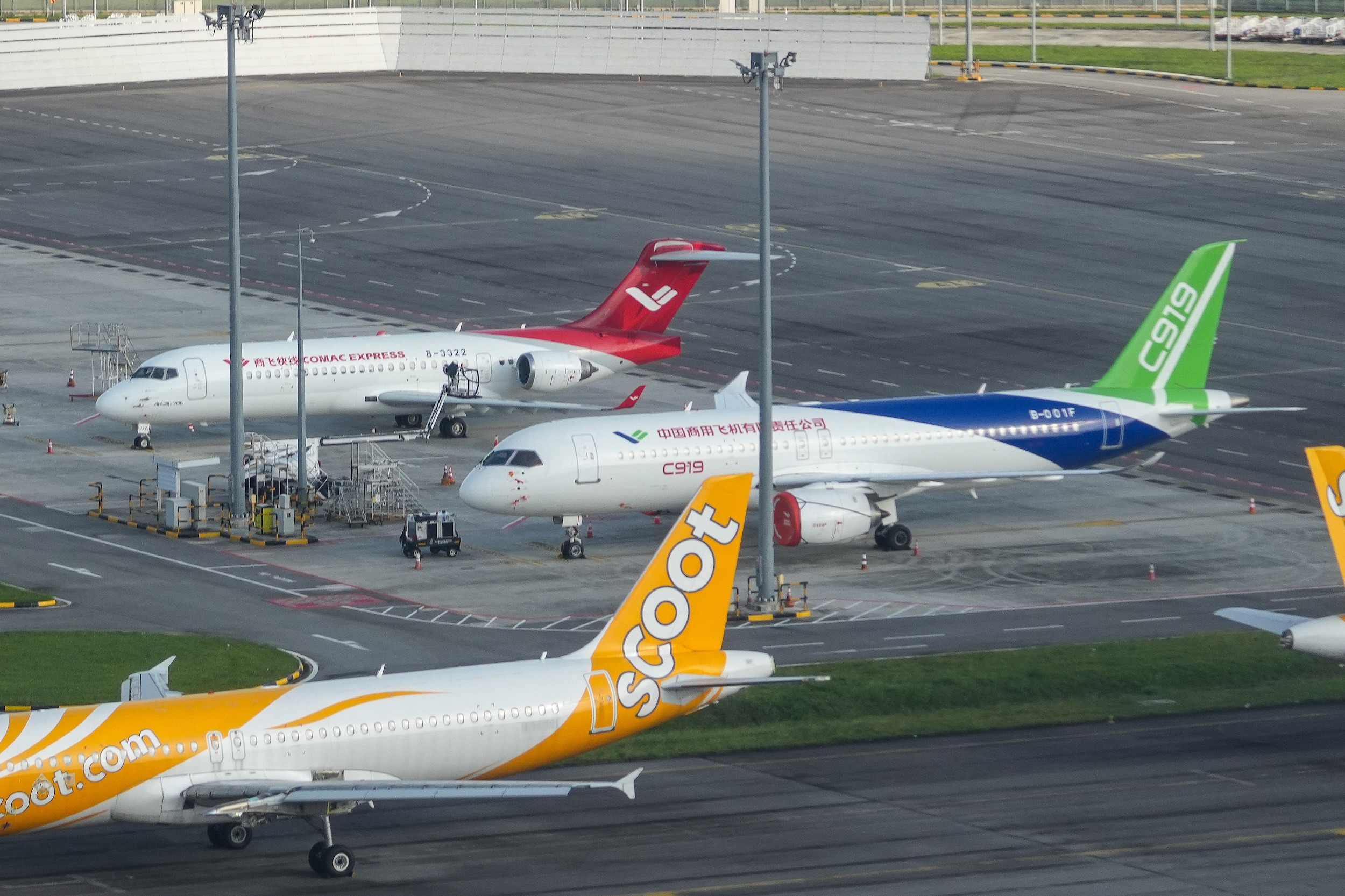Log-in here if you’re already a subscriber
The U.S. Department of Commerce’s suspension in approving export licenses of engines for China’s commercial aircraft, previously reported to impact the engines aboard Comac’s C919, also extends to GE Aerospace engines for the C909, the country’s indigenous regional jet, according to people familiar with the government’s move. Clearance for key components from suppliers like Honeywell Aerospace and RTX Corp. unit Collins Aerospace have also been halted, some of the people said.
Denial of production engines and key components for both of Comac’s airplanes is a strike at the very heart of China’s strategic aerospace ambitions, which today still rely exclusively on Western propulsion systems and many joint ventures with U.S. suppliers. The single-aisle C919 and the C909 have been vehicles for national advancement, not only providing a domestic option alongside Western imports, but also bolstering high-value, high-leverage exports with airlines in countries crucial to China’s sphere of influence.
Related: Resurgent U.S. mercantilism upsets an aviation system engineered for globalization
The New York Times first reported on May 28 that U.S.-French joint venture CFM International’s Leap-1C engines had stopped flowing from the U.S. to China. The Air Current independently confirmed the halt of the Leap-1C, which powers the C919, and has separately confirmed that the C909’s CF34-10A, sold under the GE banner, is also no longer being approved for export to Comac. The restrictions, a major escalation in the ongoing trade fight between the U.S. and China, will curtail new deliveries of both Comac aircraft once any inventory held in China is exhausted.
The White House declined to comment, and the Department of Commerce did not respond to a request for comment. Spokesmen for GE Aerospace, Honeywell and RTX also declined to provide a statement to The Air Current.
Subscribe to continue reading...Subscribe to Continue Reading
Our award-winning aerospace reporting combines the highest standards of journalism with the level of technical detail and rigor expected by a sophisticated industry audience.
- Exclusive reporting and analysis on the strategy and technology of flying
- Full access to our archive of industry intelligence
- We respect your time; everything we publish earns your attention


